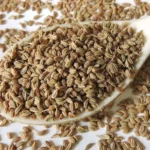Introduction
The human gut is home to trillions of microorganisms that play a crucial role in digestion, immunity, and even mood regulation. Maintaining a healthy gut microbiome is essential for overall health, and probiotics—beneficial bacteria—are vital in this process.
Understanding Probiotics
Probiotics are live microorganisms that, when consumed in adequate amounts, confer health benefits to the host. They are commonly found in fermented foods like yogurt, kefir, and kimchi, as well as in dietary supplements.
Health Benefits of Probiotics
- Digestive Health: Probiotics help maintain a balanced gut microbiota, aiding in digestion and preventing gastrointestinal issues.
- Immune System Support: By modulating the gut microbiome, probiotics can enhance immune responses and reduce inflammation. Frontiers
- Mental Well-being: Emerging research suggests a link between gut health and mental health, indicating that probiotics may alleviate symptoms of anxiety and depression.
Incorporating Probiotics into Your Diet
- Fermented Foods: Include foods like sauerkraut, miso, and kombucha in your meals.
- Probiotic Supplements: Consider supplements containing strains like Lactobacillus and Bifidobacterium, after consulting with a healthcare provider.
Conclusion
Probiotics play a significant role in maintaining gut health, which is intrinsically linked to overall wellness. By incorporating probiotic-rich foods or supplements into your diet, you can support digestive health, bolster immunity, and potentially enhance mental well-being.





